Solar Spells
Editor’s Note: Following last month’s two solar terms, the Beginning of Spring and Rain Water, this month we are back with another two solar terms for spring! Spring has always been the favorite season in China as it brings warmth and renewed vigor to the land – so let’s give them a warm welcome!
Awakening of Insects
The Awakening of Insects is the third of the 24 solar terms on the Chinese lunar calendar. It usually falls on March 5 or 6 on the Roman calendar, and this year is March 5. As its name suggests, during this solar term animals that have been hibernating underground in winter are suddenly awakened by spring thunder which shakes the sky like a lion roaring in the night. From the Pre-Qin and Han dynasties onwards, the Chinese people – particularly the peasantry – worshipped the God of Thunder and believed he had the ability to punish vice. The ancient Chinese made various sacrifices to him to ask for favorable weather. Statues of the Thunder God can still be found in some of the larger Taoist temples.
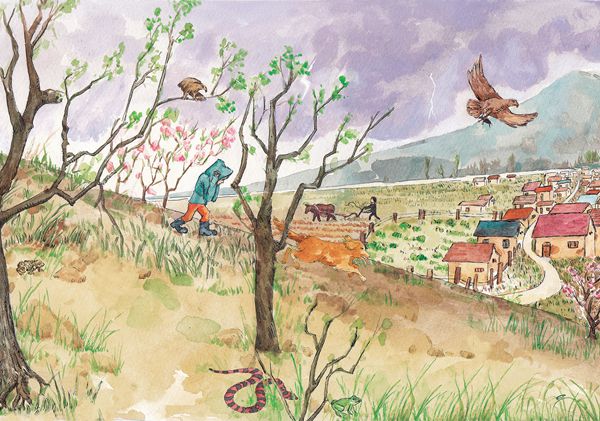
After the Awakening of Insects, the bare fields begin to come back to life, making it a key time for spring ploughing and planting. Farmers are normally able to forecast the weather in the period following this solar term by analyzing the wind. There is a Chinese proverb that says: “If the Awakening of Insects is cold, it will be warm during the next solar term.” Or: “If a southerly wind blows on this day, we will have a few more wintry days.”

This solar term heralds an increase in temperature and humidity. Thunder and lightning occur when warm, moist air streams upwards and collides with cold air. Some people think this helps to purify the air.
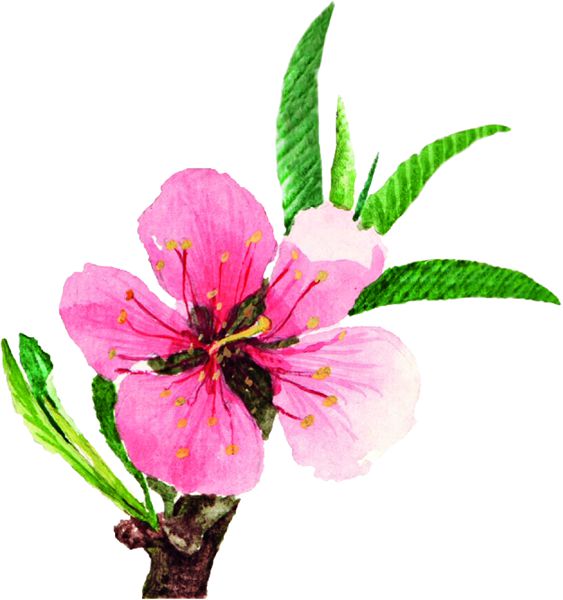
The peach trees are now in bloom and the willows are turning green. The pink peach blossom scattered amongst the drooping willows creates a very pretty picture in these bright days of early spring.
The Awakening of Insects is an extremely important time for farmers and is widely seen as the beginning of the busiest time on the agricultural calendar. During this period, most parts of China experience a quick rise in temperature to above 10 degrees Celsius, and there is a marked increase in sunshine which provides the perfect conditions for ploughing. One old Chinese proverb says that “after the Awakening of Insects, spring ploughing never rests.” Farmers busy themselves with ploughing, applying fertilizers and clearing ditches, ready for spring planting.
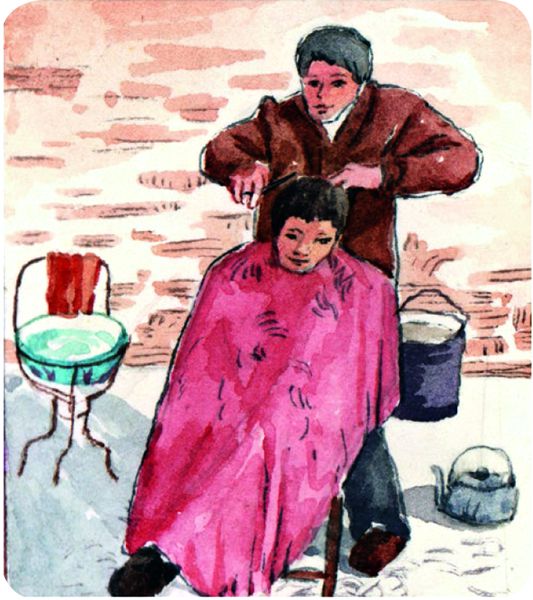
There is a traditional festival linked to this solar term. The second day of the second month on the lunar calendar is Dragon Head Raising Day, a holiday to make offerings to the Rain Dragon. In the ancient agrarian society, Chinese people believed that the dragon could help clear farms of harmful pests and thus secure a good harvest. In many places across China, especially in the North, people traditionally have their hair cut on this day.
Spring Equinox
Spring Equinox falls on March 20. By the time of this solar term, half of spring has already gone by. How fleeting spring is! On this day, the sun shines directly on the Equator, and, as a result, daytime is as long as night. After this day, the daytime of the Northern Hemisphere starts getting longer while nighttime gets proportionally shorter.
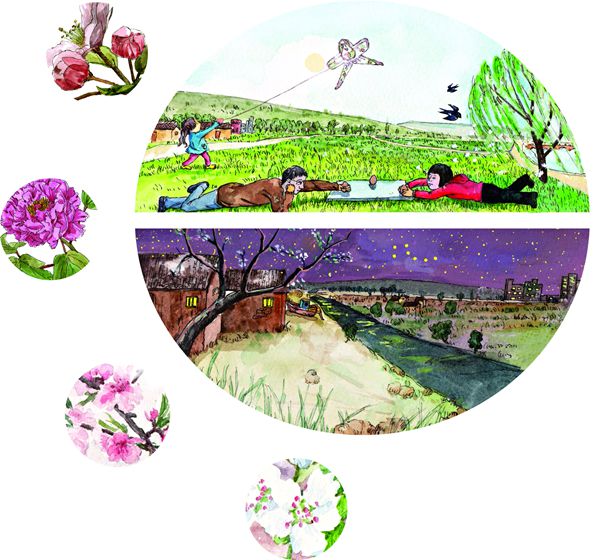
This is the time when riverside willows are green, trees are filled with twittering birds, and wheat grows astonishingly fast. In South China, the land is painted with colorful flowers; rainfall increases in regions south of the Yangtze River, while in North China, where spring rain is deemed as precious as cooking oil, rainwater is still in short supply, so crops fight a continual war against drought.
As it gets warmer, flocks of birds that have flown south for the winter return north. They fly back and forth, repairing their old nests. This is a good time of year for people to go hiking or walking in the fields.
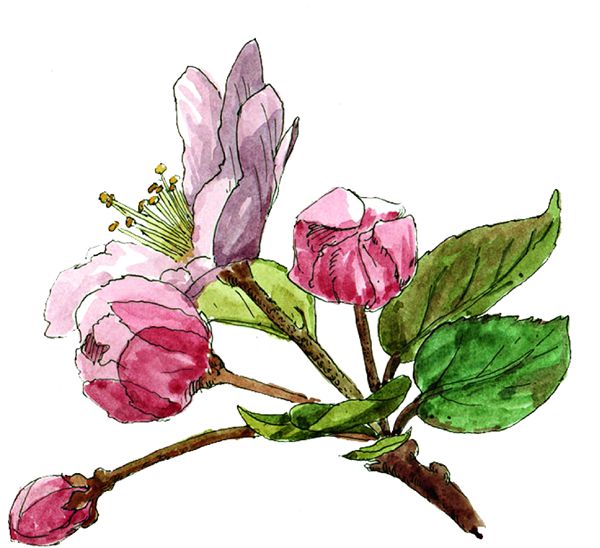
In Chinese folklore, it is said that eggs can be balanced upright at the Spring Equinox. In some parts of China, people believe the person who can make an egg stand up on this day will be continually blessed all year long. Well, according to astronomers and physicists, setting the egg upright has nothing to do with time, but with mechanics – shifting the egg’s center of gravity. The trick is to hold the egg upright until the yolk sinks down to the bottom. An egg which is at least four or five days old is more inclined to allow the yolk to readjust.
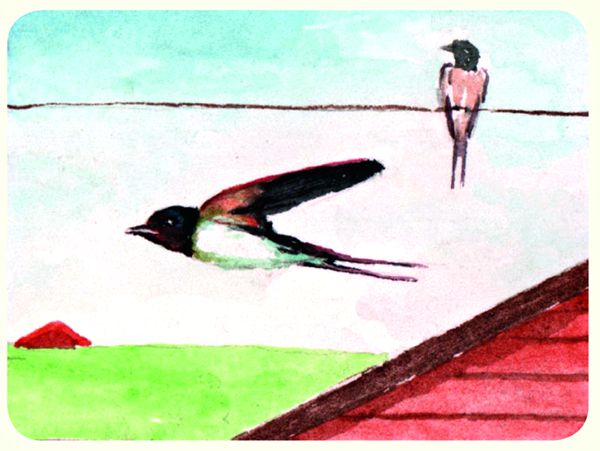
Among ancient Chinese poems on the subject of spring, “The Willow” written by He Zhizhang (c.660 – c.740) during the Tang Dynasty (618-907) sounds almost as good as spring itself:
Slender beauties dressed in emerald surround,
A thousand branches droop like jade fringes.
But do you know who carves these slim leaves?
The wind of early spring is sharp as scissor blades.
(Compiled by China Today based on The Twenty-Four Solar Terms Published by Dolphin Books)







